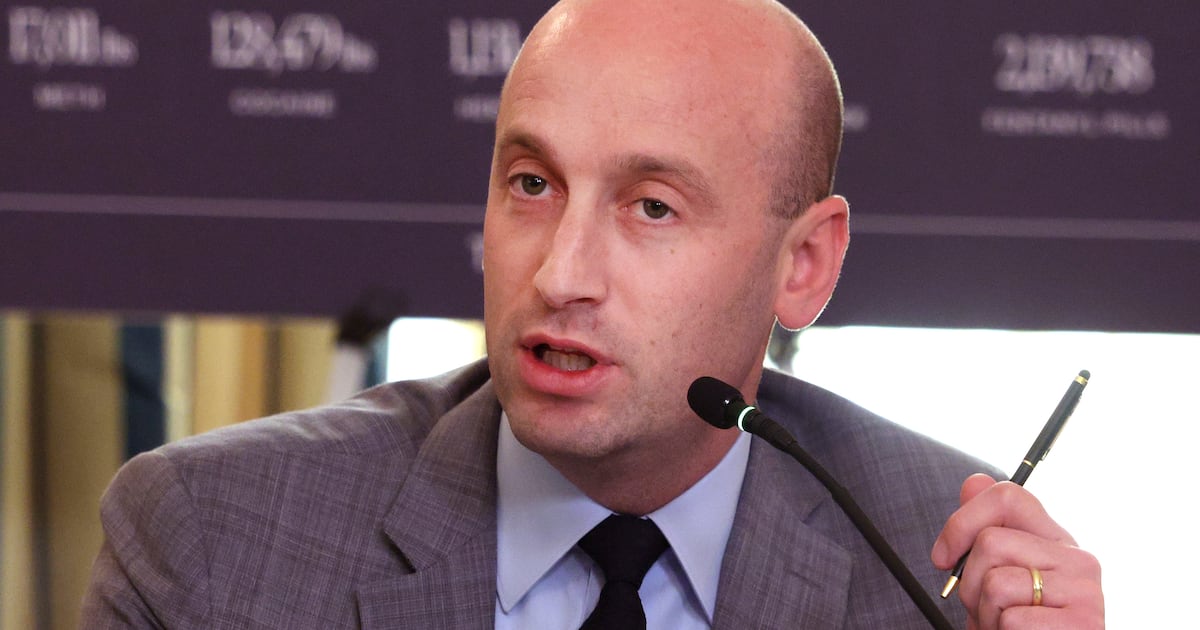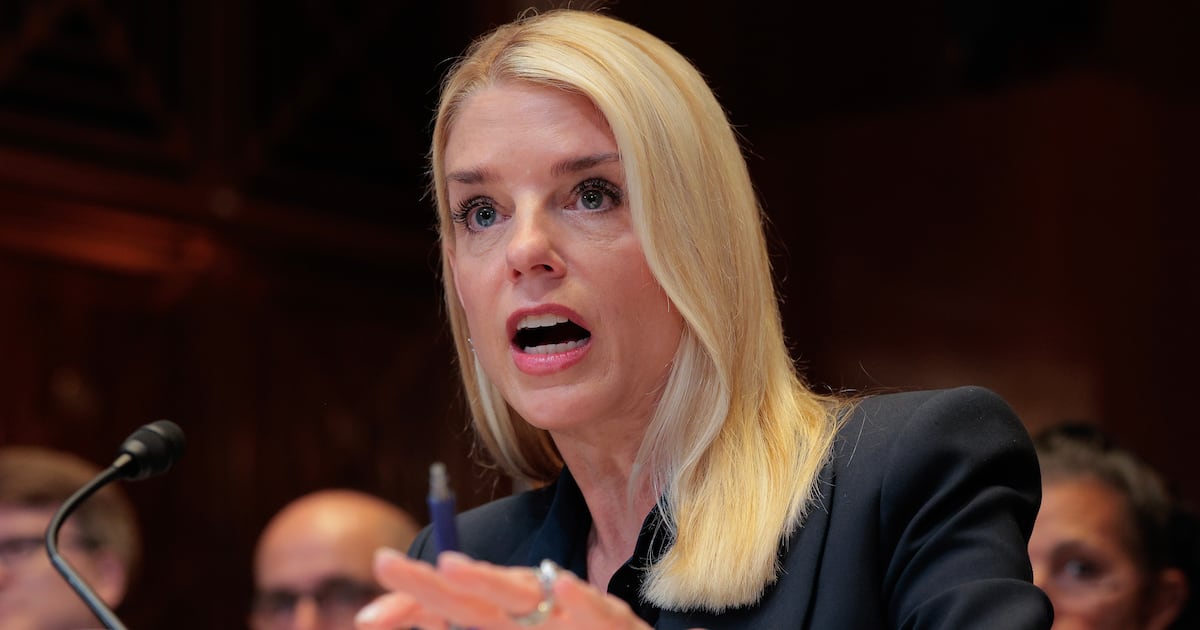When it comes to school reform, President Obama and his secretary of Education, Arne Duncan, intend to spend 2011 pursuing more federal influence over local schools—particularly in the areas of curriculum standards and teacher evaluation and pay. “Am I hopeful? Absolutely,” Duncan told Politico last month. “Am I optimistic? Yes. Do I think it’s the right thing to do for children, for the country? Absolutely.”
But the White House’s play for a bipartisan legislative victory on education could be slowed by the latest small-government fad sweeping the GOP caucus: the ideology of “parental rights,” an outgrowth of the Christian conservative homeschooling movement that has made deep in-roads among Tea Party activists and the candidates they support.
From influential freshmen Senators Marco Rubio and Rand Paul to new House members Rick Berg and Kristie Noem, a number of incoming freshmen ran as advocates of the homeschool and parental-rights movement, and oppose almost every federal effort to regulate or improve schools. They favor closing the Department of Education and have no problem thumbing their noses at the Republican Party’s recent history of support for expensive, top-down school reform efforts such as No Child Left Behind.
"No Child Left Behind was a huge mistake,” Paul said back in October. “Republicans passed it… but it really went against our real philosophy.”
The competing parental-rights movement has three key legislative priorities for 2011: preventing any Obama-led reauthorization of the No Child Left Behind Act from regulating or even mentioning homeschooling; allowing homeschool families to claim tax credits for educational expenses, and—most ambitiously—passing the Parental Rights Amendment, an attempt to prevent the U.S. from ratifying the United Nations Convention on the Rights of the Child. (The international treaty was originally developed in close collaboration with the Reagan administration, and has been ratified by all United Nations member states except for the U.S. and Somalia.)
Across all these issues, “We can’t have government officials coming in and supervising the decisions that fit parents make,” said William Estrada, director of federal relations at the Homeschool Legal Defense Association.
The organization has powerful supporters—both veteran legislators and newcomers. Mike Pence, chairman of the House Republican Conference, and Cathy McMorris Rodgers, the caucus’ vice-chairwoman, support homeschool tax credits. John Kline, the incoming House Education Committee chairman, was the keynote speaker at last spring's Home School Legal Defense Association conference, where he said he would work to "charge up Capitol Hill with the message of homeschool freedom.” And seven GOP senators, led by Tea Party darling Jim DeMint, support the Parental Rights Amendment.
“We can’t have government officials coming in and supervising the decisions that fit parents make”

Rubio and Paul ran for Senate supporting tax credits for homeschoolers, though they also describe themselves as deficit hawks committed to balancing the federal budget. Paul has been an especially vocal advocate for homeschooling, often speaking publicly about the prominent role homeschooling volunteers played in his Kentucky campaign. He spoke on June 25 to the Christian Homeschool Educators of Kentucky, whose mission is to “protect children from mental, physical, emotional, and sexual abuse by secular humanists in a socialist society or governmental system.” On his campaign website, Paul’s staff regularly promoted homeschooling as an alternative to failing public schools, citing high academic achievement scores among homeschooled children (who also tend to come from more affluent families than their public school counterparts.)
As a South Dakota state legislator, House representative-elect Kristi Noem introduced legislation to lower the age of compulsory education from 18 to 16 in her state, a cause promoted by the homeschooling community.
In the North Dakota legislature, Representative-elect Rick Berg successfully passed a law allowing any adult to homeschool their child, even those without a high-school degree. The bill also allowed high-school graduates to homeschool their children without the supervision of a licensed teacher, previously required by state law.
Advocates for the Parental Rights Amendment claim the Convention on the Rights of the Child—which the Obama administration supports—would allow the federal government to regulate or outlaw homeschooling, require more federal spending on child health and welfare, and even allow schools to provide contraception or arrange abortions for students without their parents’ knowledge or consent.
“If I can’t teach my values to my kids, and you can’t teach your values to your kids, then in a generation or two, they’re only going to know what the government wants them to know. And honestly, the government is the problem right now,” said Jim Bentley, executive director of ParentalRights.org, the organization lobbying for the Parental Rights Amendment in close alliance with the Homeschool Legal Defense Association. “Parental rights is the foundation to all our other freedoms.”
The actual treaty mentions few of these issues, saying only that children have the right to accurate medical information, for example, not the right to any particular reproductive health service or type of sex-ed. And according to Meg Gardinier, chairwoman of the Campaign for U.S. Ratification of the Children’s Rights Convention, the treaty has never been used to interfere with homeschooling in a signatory country.
“The U.S. has a leadership role to play when it comes to implementing and safeguarding the rights of children worldwide,” Gardinier said. “We could join a global consensus and pave the way. But because we haven’t ratified it, we cannot really be a global player when it comes to children’s rights, and that’s a real loss.”
The paranoid-sounding rhetoric in opposition to the Convention has reached the grassroots. The Tea Party Express—and at least three state-level Tea Party Patriots-affiliated groups (Alabama, Tennessee, and Virginia)—have publicly embraced parental-rights events and speakers, despite Tea Party leaders’ aversion to making statements on social issues. In the coming months, Parentalrights.org will screen a new documentary, The Child, in over 500 homes, churches, and libraries. The film’s trailer implicitly compares the Convention, a fairly anodyne statement of child welfare and human rights, to Nazi ideology. Faced with the strength of the parental-rights movement—coupled with growing Republican antipathy toward federal spending on school reform—the question for the White House may be whether they can earn some Republican support for a No Child Left Behind reauthorization by throwing in tax credit sweeteners for homeschool families, or by giving up the long-held Democratic Party hope of ratifying the Convention on the Rights of the Child.
If that happens, yet another segment of the Democratic base—liberal internationalists—will have another reason to be disappointed. “I think the campaign is holding out that when the time is right, this treaty will be ratified,” Gardinier said. “I don’t see it happening within the next year or two, but we would really like to deliver this treaty to the Obama administration by the end of 2012.”
Dana Goldstein is a Spencer Education Journalism Fellow at Columbia University, and a former associate editor at The Daily Beast. Her writing on politics, women's issues, and education has also appeared in The American Prospect, The Nation, The New Republic, BusinessWeek, and Slate. You can follow her work at www.danagoldstein.net.






